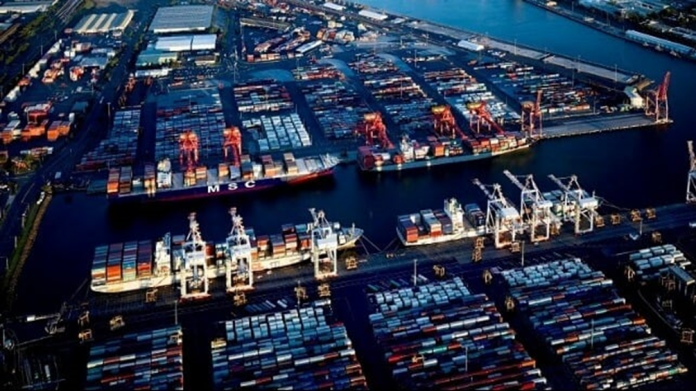
A project to explore developing a methanol bunkering hub at Australia’s Melbourne port is being supported by shipping companies including Maersk and Svitzer as well as CMA CGM’s ANL subsidiary. It is the first effort in Australia and joins projects in other parts of the world that look toward developing the infrastructure that will be required to support the adoption of methanol and green methanol as a marine fuel.
“We’re driving the biggest ports reform program in decades through our Victorian Commercial Ports Strategy and this announcement complements our work to protect the future of our commercial ports, which includes the Port of Melbourne as a hub for trade and to ensure it remains one of the biggest and best ports in the country,” said Minister for Ports and Freight Melissa Horne.
Under the terms of the agreement, the companies will work together to explore the various elements of establishing a green methanol bunkering hub and identify any challenges that would need to be addressed. The collaboration will examine a potential project involving the transportation of green methanol from production sites in Bell Bay, Tasmania, operated by ABEL Energy, and Portland, Victoria, operated by HAMR Energy, to Port of Melbourne for storage and bunkering services.
“As Australia’s largest container port with around 3,000 ships visiting annually, it makes sense that we look at ways to work together with customers, service providers, and producers to understand the needs of the market,” said Saul Cannon, CEO of the Port of Melbourne.
The companies that will be joining together to explore the commercial feasibility of establishing a green methanol bunkering hub at the Port of Melbourne include in addition to the port authority, Maersk, Svitzer, CMA CGM’s subsidiary ANL, and terminal operator Stolthaven Terminals. The energy companies will be HAMR Energy and ABEL Energy, both of which are developing green methanol production capabilities.
News of the agreement came as Maersk also announced a series of celebratory events timed to the introduction of the world’s first new construction methanol dual-fuel containership. South Korea’s Hyundai Mipo shipyard floated out the as-yet-unnamed feeder ship on April 4 and is completing the fitting-out process. Maersk said the vessel will depart South Korea this summer and reach Copenhagen in time for a “week of festivities” between September 18 and 21, 2023 that will include a naming event.
A.P. Moller – Maersk reports it will host events for employees, partners, investors, and students. The dock area next to its headquarters will be open for the public to take a closer look at the new vessel from the dock and learn more about the efforts to decarbonize the shipping industry.
The 564-foot vessel will have a container capacity of 2,100 TEU. She has a dual-fuel methanol engine and is designed with an operating speed of 17.4 knots. After the events, Maersk reports she will be operating in the Baltic and provide real experience for Maersk seafarers in operating the new type of fuel, as the company prepares to receive a fleet of new, large ocean-going dual-fuel ships beginning in 2024.
Other large shipping companies including CMA CGM, COSCO, and OOCL, have also ordered the construction of large dual-fuel methanol containerships. Feeder ship operators have also begun to order methanol-fueled ships with analysts predicting that adoption of the alternative fuel will accelerate as infrastructure efforts such as this project in Melbourne build the required support for the fuel option.
Source – THE MARITIME EXECUTIVE




